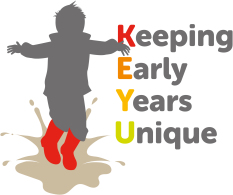Campaigns Working on School Starting Age and Early Years
Flourish Movement
The Flourish Movement is a growing network of parents, teachers, academics and early years experts who are concerned about child wellbeing.

They launched in 2013 (originally as the Save Childhood Movement) and have founded National Children’s Day UK which is all about the importance of a healthy childhood, and how we need to protect the rights and freedoms of children in order to ensure that they can grow into happy, healthy adults.
One of their initiatives is the Too Much Too Soon campaign whereby they are lobbying the Government to delay the start of formal school and calling for a fundamental reassessment of national policies on early education.
You can support them by following the Save Childhood Movement on Facebook and Twitter.
Summer Born Campaign

The Campaign for Flexible School Admissions for Summer Born Children (or “Summer Born Campaign”) has been launched by parents, carers and professionals who believe that a summer born child should be allowed to start primary school in Reception class, aged five instead of aged four.
They say that parents of four-year-old children who have not reached emotional, social or academic maturity and readiness for school are being forced to enrol their child a whole year earlier or have their child’s education entitlement reduced by one year with obligatory entrance into Year 1.
The Summer Born Campaign argues that this is not in the best interests of the child and the current system needs to change. They are calling on the Government to provide greater clarity in its legislation as this area of school admissions is currently a postcode lottery for many parents.
They are asking for an amendment to the School Admissions Code that ensures fair and equal access to Reception class for summer born children starting school at compulsory school age, without penalty.
To support their work, you can follow the Summer Born Campaign on Facebook.
Keeping Early Years Unique

The Keeping Early Years Unique (KEYU) movement started in 2015 as a Facebook page for people working in early education who were feeling the pressures put on staff, children and their families.
The group quickly grew and today has over 45,000 members across the globe.
The KEYU movement says that children need characteristics such as resilience, perseverance, creative thinking, the ability to solve problems, think outside the box, independence, skills in risk taking and making connections.
They believe that the Early Years Foundation Stage curriculum delivers this well but are concerned that this approach ends when children leave Reception.
For many children, it is ending even earlier during their Reception year following proposals in OFSTED’s 2017 “Bold Beginnings” report, which aim to get children as young as four “curriculum ready”.
KEYU are asking us to stand together to make a change for the future. Please sign their petition to a) stop the Government pushing Key Stage 1 into Reception, and b) extend the principals of the Early Years curriculum.

Upstart
Upstart is a movement to introduce a kindergarten stage for children aged three to seven in Scotland, which would focus on play and self-directed education. They also campaign against the literacy and numeracy tests that Scottish five year olds sit in their Primary 1 year. They state:
“The western countries with the best records in education don’t start formal schooling till children are seven. Instead they have a kindergarten stage based on well-established principles of child development.
Research shows no long-term educational benefit to pressurising children in the three Rs at the age of five, but there may be long-term ill-effects in terms of mental health and well-being. As long as the P1 tests are there, it will be impossible for schools to provide the type of early years education that international research shows works best for the under-sevens.”
To keep up to date with their campaigns, you can follow Upstart on Facebook or Twitter, or register for their monthly online newsletter. You can also watch this recording from the launch event of Upstart’s new book “Play is the Way”. It brings together 16 of Scotland’s leading thinkers on the importance of play in children’s lives:

